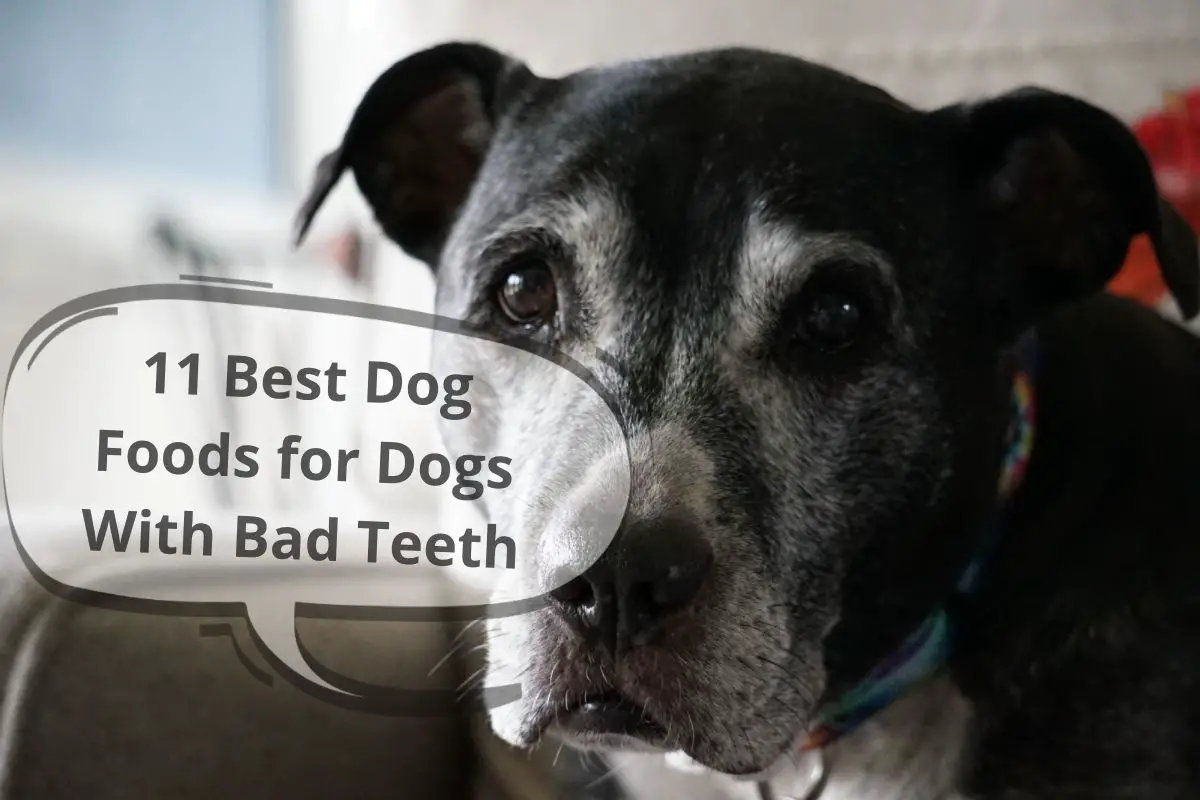This post contains affiliate links.
Scrambled eggs are tasty, nutritious, and delicious for humans, so surely they should be nutritious treats your dog can look forward to. However, this may or may not be a good idea, depending on what ingredients you add. If you can eat scrambled eggs every day, can your dog eat them too?
Scrambled eggs for dogs are great treats and additions to your furry friend’s meals. However, avoid adding onions and other ingredients in your dog’s scrambled eggs, including oil. Human stomachs differ from dog’s stomachs, so be careful when feeding eggs to your dog.
This article will tackle everything you need to know about scrambled eggs for dogs, including:
- The benefits and drawbacks of dogs eating eggs.
- Common concerns when feeding scrambled eggs to dogs.
- Give you pointers on preparing scrambled eggs for dogs and other cooked egg dishes.
Table of Contents
Can Dogs Eat Eggs?
You’re eating breakfast, and there is your dog begging you for more food. While you usually give your pet some treats here and there, those treats are always specifically for dogs instead of human food. However, what if you feed your furry friend a few eggs?
Dogs can safely eat eggs if cooked right, as they contain friendly and digestible protein alongside vitamins and minerals like riboflavin and selenium. However, you’ll want to feed your dog whole cooked eggs instead of only egg whites or half-cooked eggs.
Half-cooked eggs increase the chances of salmonella poisoning, which can dehydrate your furry friend or even cause blood poisoning. However, cases of sepsis or blood poisoning among dogs are rare. Most salmonella infections in dogs result in fever, vomiting, or general weakness.
Generally, dogs benefit from eggs as treats or eggs in their meals when they’re training or leading active lifestyles. Besides the protein boost, eggs provide dogs with important fatty acids, vitamins, and minerals, which makes them perfect for your dog if you think their daily dog food doesn’t meet their everyday nutrient needs.
What Benefits Do Dogs Get When They Eat Eggs?
Dogs receive beneficial nutrients when they eat plainly cooked whole eggs. If you add other ingredients to the egg, you may unknowingly feed your dog foods harmful to them. A different section in this article will talk about those ingredients, but this section will focus on the good and the bad of feeding eggs to your dog.
The Benefits of Feeding Eggs to Your Dog
Feeding your dog cooked eggs of any form, including boiled, poached, or scrambled, provides your furry friend with digestible protein and a couple of other things, namely:
- Fatty acids help create and maintain cells and transport fat-soluble vitamins.
- Biotin and riboflavin enhances your dog’s skin and coat.
- Vitamin D promotes healthy teeth and bones.
- Pantothenic acid plays a crucial role in energy production.
- Vitamins A, B1, B6, B12, D, E, and K encourage normal cell growth.
- Folic Acid, Choline, and Niacin aid cell development.
- Minerals like Selenium, Potassium, Iron, Zinc, Calcium, and others support your dog’s bones and muscles.
The Disadvantages of Feeding Eggs to Your Dog
Even when cooked right, a few issues may arise when you feed your dog too many eggs:
- If you feed your dog only the egg whites, they will develop a biotin deficiency that results in a dull coat, scaly skin, and brittle hair.
- Weight gain occurs when too many fats are already in your furry friend’s diet.
- Too much gas or an upset stomach occurs in some dogs.
- Allergic reactions sometimes happen as well.
How To Feed Your Dog Scrambled Eggs
It’s best to feed your dog scrambled eggs cooked without additives like salt, pepper, garlic, onion, oils, and other seasonings that aren’t suitable for dogs. These items can cause gastrointestinal distress and other issues for your dog.
However, you can safely add cheese to your dog’s scrambled eggs, as it provides a host of nutrients to your dog and enhances the egg’s flavor. Before feeding your dog scrambled eggs with cheese, ensure that your furry friend isn’t allergic to cheese’s ingredients first.
If you’re feeling fancy, you may add meat to your dog’s scrambled egg, too, but make sure that you pre-cook the meat before adding it to the scrambled egg since scrambled eggs only take a few minutes to cook. If you’re adding fast-cooking meat like fish or chicken strips, you can simply add the raw meat with the egg and cook them together.
Can Puppies Eat Scrambled Eggs?
If you can feed adult dogs eggs, can puppies eat scrambled eggs, too? Generally, scrambled eggs are safe for puppies to consume as long as they’re cooked properly and plainly. However, you shouldn’t feed your puppy scrambled eggs regularly because their stomachs may find it hard to handle.
Puppies also need a well-formulated diet that doesn’t include human foods, as they’re still growing and need proper nutrition to grow up healthy and strong.
Should You Feed Scrambled Eggs to a Sick Dog?
If your dog is sick, feeding them scrambled eggs should be okay, but talk with your vet first so that you don’t inadvertently make your dog sicker.
Sometimes, a sick dog may refuse to eat due to a lack of appetite, and giving them eggs offers them a tasty alternative to regular dog food. It also provides them with an energy boost and some nutrients to help them fight their sickness.
More importantly, dogs suffering from protein loss or anemia will benefit well from scrambled eggs, while senior dogs find scrambled eggs a useful addition to their diet as they age.
Why Can’t You Add Other Ingredients to a Dog’s Scrambled Eggs?
Dogs don’t process food the same way humans do, so despite being fed natural and healthy human ingredients, dogs may experience adverse reactions to certain scrambled egg additives, such as butter, salt, onions, and garlic. These common scrambled egg ingredients that can harm your dog.
Butter or oil contain a large amount of fat, which can accumulate over time and result in pancreatitis in your dog. Over time, this can lead to diarrhea in dogs, so take caution when cooking eggs for your dog. Remember that your dog can’t digest the typical oils we use for cooking.
On the other hand, too much salt can dehydrate your dog and even cause diarrhea, nausea, and vomiting if they eat large quantities of it. Your dog should only consume a maximum of 200 mg (0.02 gr) of salt.
Meanwhile, onion and garlic contain substances poisonous to dogs, which can overwhelm your dog’s red blood cells and rupture them leading to anemia and blood loss.
Can Dogs Eat Scrambled Eggs With Milk?
Dogs can eat scrambled eggs with milk, but you need to ensure your dog isn’t allergic to dairy products or lactose intolerant. Otherwise, your furry friend may experience some stomach issues from being unable to digest the milk properly.
Some milk types have a high-fat content, which can cause both short-term and long-term issues for your dog, such as:
- Diarrhea
- Allergic reactions like itching or redness
- An upset stomach
- Pancreatitis
- Weight gain
In general, avoid feeding puppies scrambled eggs with milk. On the other hand, milk offers a flavorful twist to regular scrambled eggs for your adult dog, so if you can get away with occasionally adding a small amount of it, you may do so.
Can Dogs Eat Scrambled Eggs With Cheese?
Similar to how some dogs may react badly to dairy, you need to check your dog’s reaction to the cheese before feeding them more of it. Dogs can eat scrambled eggs with cheese, and this meal actually increases the nutrients they receive, but make sure your dog can handle it.
How Often Should You Give Your Dog Scrambled Eggs?
Now that you’ve decided on feeding your dog scrambled eggs, how often should you give them to your dog?
If your dog is active, they can consume scrambled eggs daily. It wouldn’t harm them over a longer period of time because, despite the egg’s high-calorie content, your furry friend will manage to burn them.
They can also eat scrambled eggs daily as long as it doesn’t exceed 10% of their daily calorie intake. Remember that an egg contains approximately 70 calories, so keep that in mind when calculating your dog’s calorie intake.
Meanwhile, if your dog isn’t the active type and mostly just lounges around, it’s best to limit egg intake to once or twice a week, which ensures your dog won’t receive extra fats from the scrambled eggs regularly.
How Many Scrambled Eggs Can I Give My Dog?
How many eggs per meal should you feed your dog? The answer is that it depends. While a smaller dog might be able to eat one or two eggs per day, a larger dog will have no problem eating up to four or five eggs per day. The best thing to do is to contact your vet before starting your dog on eggs.
However, you may also give your furry friend scrambled eggs that don’t exceed 10% of their daily calorie intake. Similarly, when you’re just beginning to feed your dog scrambled eggs, start with the minimum amount possible so you can gauge how your dog’s body reacts to the eggs.
Can I Feed Scrambled Eggs to My Dog as a Treat?
As we mentioned before, you can feed your dog scrambled eggs as treats or with their meals. It’s alright and safe for your dog as long as you remember to keep your furry friend’s egg intake not to exceed 10% of their daily calorie intake.
Can Dogs Get Salmonella?
Dogs can contract salmonella, but it’s uncommon. However, practice caution, and to be safe, always ensure that you thoroughly cook your dog’s scrambled eggs or any other egg preparation, which kills the egg’s salmonella-causing bacteria.
Can Dogs Have Too Much Cholesterol From Eggs?
Dogs aren’t affected by cholesterol the same way humans are, so the cholesterol in eggs doesn’t bother dogs. Often, you’ll notice weight gain in your furry friend before other issues from eating too many eggs arise in your dog.
How To Feed Scrambled Eggs to Your Dog
You can feed your dog scrambled eggs by serving the eggs as standalone treats or adding the scrambled eggs to your furry friend’s meals. To cook scrambled eggs for your dog, follow the steps below:
- Crack eggs into a bowl and beat them until the yolk and egg white blends.
- You may also add cheese or pre-cooked meat into your dog’s egg mixture.
- Add some drops of water into a skillet and pour in the egg mixture.
- Stir the egg occasionally until thoroughly cooked.
Can Dogs Eat Other Egg Preparations?
Dogs can eat other egg preparations besides scrambled eggs, including boiled and poached eggs. It’s best to refrain from feeding your dog raw eggs because, although uncommon, there’s still the risk of your dogs possibly developing salmonella.
Can Dogs Eat Egg Whites or Egg Yolks Exclusively?
Dogs can eat just the egg whites or egg yolks, but it’s not recommended. Eating egg whites alone for a long period can cause biotin deficiency in dogs while eating egg yolks alone gives your dog incomplete nutrients. Dogs benefit from eating whole-cooked eggs rather than an egg part.
But you don’t want to separate the eggs, as the yolk contains all the flavor that dogs love. So to boost the flavor profile of the eggs you give your dog, make sure that it contains both the yolk and the white.
Can Dogs Eat Eggshells?
If you’re feeding your dog scrambled eggs, can dogs eat the eggshells too? Dogs can eat eggshells, which serve as excellent sources of Calcium and Phosphorus for dogs.
However, check with your vet first before feeding your dog extra Calcium because some puppies shouldn’t be fed extra Calcium. You can feed eggshells to dogs by boiling and grinding the shells to create an eggshell powder. It’s quite a win-win situation for you since you’re cooking scrambled eggs for your dog, anyway.
Final Thoughts
Dogs can eat plain and thoroughly cooked scrambled eggs as treats or meal additions. Scrambled eggs provide a protein boost and plenty of nutrients to your furry friend. However, it’s crucial that you don’t add seasonings to the egg because they can cause problems for your dog. Likewise, ensure your dog isn’t allergic to eggs before committing to regularly feeding them scrambled eggs.
Sources
- National Academies Press: YOUR DOG’S NUTRITIONAL NEEDS
- The Dog People: 5 Safe and 5 Dangerous Spices for Dogs
- Modern Dog: 10 “People” Foods for Dogs
- Purina: Can Dogs Eat Eggs?
- Dig Doggy: Can Dogs Eat Eggshells?
- Healthy Homemade Dog Treats: Can Dogs Eat Scrambled Eggs?
- American Kennel Club: Can Dogs Eat Eggs?
- Nom Nom: Can Dogs Eat Scrambled Eggs?
- American Kennel Club: Can Dogs Eat Cheese?
Mrdogfood.com is a participant in the Amazon Services LLC Associates Program, an affiliate advertising program designed to provide a means for sites to earn advertising fees by advertising and linking to Amazon.com. We also participate in other affiliate programs which compensate us for referring traffic.




